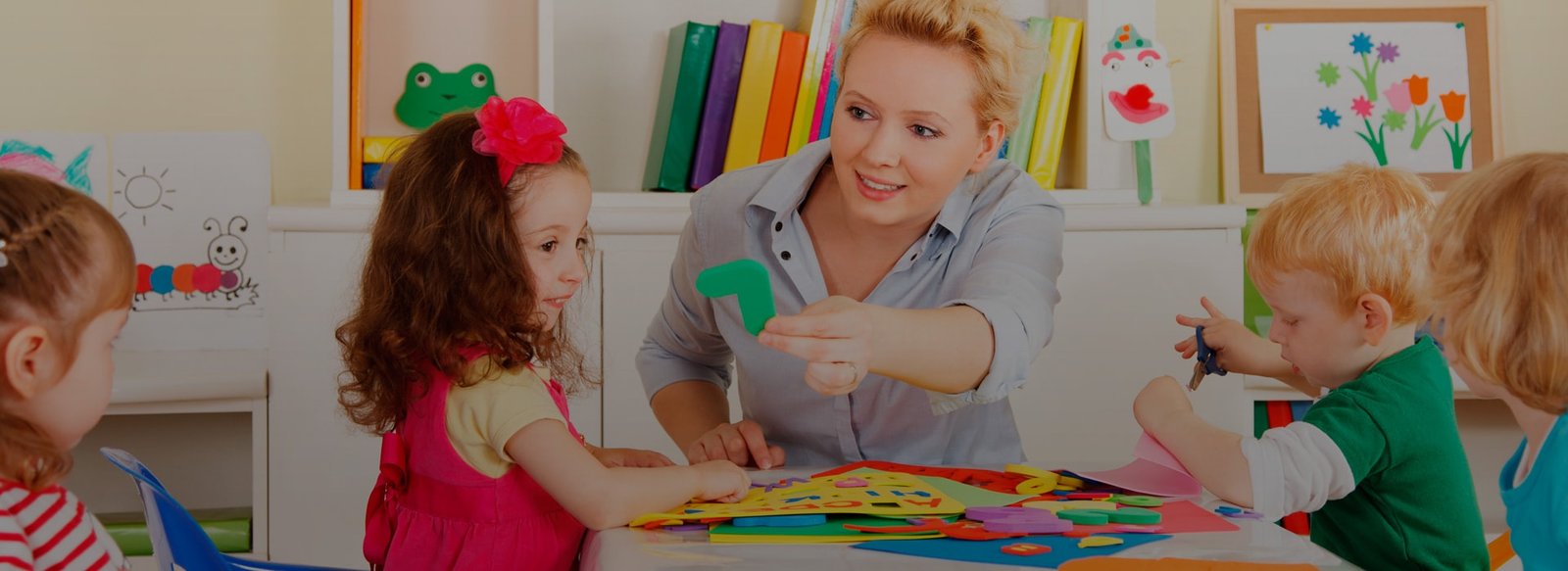![Smyrna Day School: Positively Unlocking Child Potential Through a Unique Educational Approach Introduction to Smyrna Day School Smyrna Day School stands as a vanguard in the sphere of early childhood education, driven by a zeal to revolutionize the traditional educational landscape. The […]](https://dayschools.org/smyrna/wp-content/uploads/sites/4/2023/07/Smyrna-Day-School-14.jpg)
Table of Contents
Introduction to Smyrna Day School
Smyrna Day School stands as a vanguard in the sphere of early childhood education, driven by a zeal to revolutionize the traditional educational landscape. The school’s genesis is deeply rooted in a visionary ethos aimed at cultivating an enriching environment that nurtures the intellectual blossoming of young minds. This vision seeks to transcend the confines of conventional academic boundaries, charting a course towards a more expansive and inclusive form of education.
The school’s emergence is marked by its innovative approach, one that acknowledges and addresses the multifaceted nature of learning and development in the early years. Recognizing the limitations of traditional educational models, Smyrna Day School embarked on a journey to create a learning space where creativity, curiosity, and holistic growth are not just encouraged but are integral to the educational process.
Essence of the Philosophy: Comprehensive Development
Central to the philosophy of Smyrna Day School is a steadfast commitment to comprehensive development. This philosophy challenges and extends beyond the parameters of traditional educational systems, which often prioritize intellectual development at the expense of other crucial aspects of a child’s growth.
At Smyrna Day School, education is viewed as a multidimensional process. The school’s ethos is built on the foundation of nurturing the whole child. This encompasses not only the intellectual capacities of young learners but also their emotional, social, and physical development. The belief is that true education involves fostering a balanced growth, ensuring that each child develops the skills and sensibilities necessary to navigate the complexities of the modern world.
The school’s approach to comprehensive development involves creating an environment where children can explore and develop their intellectual abilities while also cultivating emotional intelligence, social skills, and physical well-being. This balanced approach to education is designed to equip children with a broad range of competencies and experiences, laying a solid foundation for their future learning and life.
The Educational Terrain of Early Childhood
The Imperative of Preschool Education
The role of preschool education in shaping the future of a child is of paramount importance. These initial years serve as the bedrock upon which the edifice of a child’s educational journey is built. It is during this period that the foundation for lifelong learning and development is laid. The experiences and knowledge acquired in these formative years play a critical role in determining the trajectory of a child’s academic and personal growth. Preschool education, therefore, is not just a preliminary phase of formal education; it is a crucial period that can significantly influence a child’s future.
Analyzing Traditional vs. Progressive Educational Models
When examining the landscape of early childhood education, one observes a stark contrast between traditional and progressive educational models. Traditional models often emphasize rote learning and a structured, teacher-centered approach. In contrast, progressive models, such as those adopted by Smyrna Day School, advocate for a more holistic, child-centered methodology. This progressive approach is characterized by its focus on the overall development of the child, rather than solely on academic achievements. It values the individuality of each child, promoting learning experiences that cater to their unique needs, interests, and learning styles.
Smyrna Day School’s Curriculum Explored
Overview of the Creative Curriculum
At the forefront of Smyrna Day School’s educational strategy is the Creative Curriculum. This curriculum stands out for its adaptability and flexibility, designed to meet the diverse needs of each child. It is a dynamic framework that integrates various aspects of child development, including cognitive, social-emotional, and physical growth. The Creative Curriculum is not just about imparting knowledge; it is about creating a rich learning environment where children can explore, discover, and engage in meaningful activities that stimulate their curiosity and love for learning.
Customizing Learning to Suit Individual Needs
The uniqueness of Smyrna Day School’s curriculum lies in its customization. Recognizing that each child is unique, with their own set of abilities, learning styles, and paces, the curriculum is tailored to align with these individual characteristics. This personalized approach ensures that every child receives an education that resonates with them, fostering a deeper and more effective learning experience. The school’s commitment to customizing learning experiences is evident in the way it structures its programs, activities, and teaching methodologies. This individualized approach not only enhances learning outcomes but also ensures that each child’s educational journey is as unique and special as they are.
Beyond Academic Learning: Holistic Development
Fostering Emotional and Social Intelligence
At Smyrna Day School, the cultivation of emotional and social intelligence is regarded as a cornerstone of holistic development. Recognizing that these skills are as crucial as academic prowess, the school’s curriculum is designed to nurture empathy, self-awareness, and interpersonal skills. This focus on emotional and social intelligence equips children with the ability to navigate complex social environments, understand and manage their own emotions, and empathize with others. These skills are integral to developing well-rounded individuals who can contribute positively to society.
The Role of Play in Cognitive Advancement
Play is redefined at Smyrna Day School, transcending its traditional role as mere recreation. It is recognized as a vital element in the educational process, playing a significant role in cognitive development and creativity. Through play, children explore, experiment, and discover, which enhances their problem-solving skills and creativity. Play-based learning activities are carefully designed to stimulate curiosity and imagination, fostering a love for learning and an inquisitive mindset that benefits all areas of cognitive development.

Phonics-Based Reading Programs
Scientific Approach to Decoding Phonics
Smyrna Day School’s reading program is grounded in a phonics-based approach, underpinned by scientific research. This method emphasizes the understanding of the relationship between letters and sounds, which is fundamental in developing reading skills. By focusing on phonics, the school ensures that children grasp the basics of reading in a structured, logical manner, laying a solid foundation for their literacy journey.
The Enduring Impact of Early Phonemic Awareness
The emphasis on early phonemic awareness through phonics at Smyrna Day School is more than just an educational strategy; it’s an investment in the child’s future academic success. Mastery of phonemic awareness in the early years sets a strong foundation for advanced literacy skills. It not only enhances reading proficiency but also impacts other areas of learning, as literacy is a key component of overall academic achievement.
Mathematics: Bringing Numbers to Life
Hands-On Mathematical Learning
At Smyrna Day School, mathematics is liberated from the traditional confines of textbooks and brought to life through hands-on, experiential learning. This approach allows children to engage with mathematical concepts in a tangible and meaningful way. By interacting with real-world mathematical problems and scenarios, children develop a deeper understanding of mathematical principles, moving beyond rote memorization to genuine comprehension.
Establishing Foundations for Advanced Mathematical Thought
The early mathematical experiences provided by Smyrna Day School serve as foundational building blocks for advanced mathematical thinking. These experiences are carefully crafted to not only teach basic mathematical concepts but also to develop critical thinking and problem-solving skills. As children progress, they are equipped with the tools to tackle more complex mathematical challenges, setting them on a path to becoming confident and competent mathematicians.
The Indispensability of Arts in Education
Harmonizing Music and Visual Arts in the Curriculum
The integration of music and visual arts into the curriculum at Smyrna Day School is not just an addition; it’s a vital component of the educational tapestry. This harmonization of arts within the curriculum serves multiple purposes. It provides avenues for students to express themselves artistically while simultaneously enhancing their cognitive abilities. Music and visual arts are powerful tools for emotional expression and are instrumental in developing a child’s ability to interpret and interact with the world around them.
Cognitive Enrichment through Artistic Activities
Artistic activities at Smyrna Day School are more than just creative outlets; they are catalysts for cognitive enrichment. Engaging in arts stimulates various cognitive processes in children, including creativity, spatial understanding, and analytical thinking. These activities challenge students to think outside the box, develop problem-solving skills, and view the world from different perspectives. The arts encourage a type of intellectual flexibility and innovation that is crucial in the modern world.
Physical Education: Beyond Mere Activity
Structured Physical Development Programs
Physical education at Smyrna Day School transcends traditional notions of physical activity. It is a structured program designed to enhance gross motor skills, coordination, and overall physical fitness. The school recognizes the importance of physical development as an integral part of a child’s overall growth. These programs are tailored to not only improve the physical abilities of students but also to instill in them the values of teamwork, perseverance, and sportsmanship.
Correlation Between Physical Well-being and Academic Achievement
There is a well-established link between physical well-being and academic performance. Regular physical activity is known to enhance cognitive function, concentration, and memory in students. Smyrna Day School leverages this connection by incorporating physical education as a key component of its curriculum, understanding that a healthy body contributes significantly to a healthy mind and improved academic outcomes.
Integrating Technology in Early Learning
Balancing Technological and Conventional Learning
In an era where technology is ubiquitous, Smyrna Day School adopts a balanced approach to integrating technology in education. While recognizing the importance of traditional learning methods, the school also embraces technological advancements. This balanced approach ensures that students benefit from the best of both worlds – gaining foundational knowledge through conventional means while also becoming adept at using modern technological tools.
Equipping for a Technologically Advanced Future
Early exposure to technology at Smyrna Day School is about preparing students for a future that is increasingly reliant on digital competencies. By introducing technology in a controlled and meaningful way, the school ensures that students develop essential digital literacy skills. This early familiarity with technology positions students to be confident and competent in a digital future.
Language Development and Multilingualism
Benefits of Early Exposure to Multiple Languages
The early introduction to multiple languages at Smyrna Day School is a strategic move towards broadening students’ cultural horizons and laying a foundation for future linguistic proficiency. Learning multiple languages from an early age has been shown to enhance cognitive flexibility, improve problem-solving skills, and provide a deeper understanding of different cultures.
Fostering Global Citizens through Multilingual Education
Multilingual education at Smyrna Day School goes beyond the mere acquisition of languages; it is about nurturing well-rounded, global citizens. This approach fosters an appreciation for cultural diversity and prepares students to engage with the global community. By learning multiple languages, students develop a sense of empathy and understanding towards different cultures, which is essential in today’s interconnected world.
Character Education: Cultivating Moral Integrity
Embedding Values within the Curriculum
At Smyrna Day School, character education is not a separate entity but a thread woven intricately into the fabric of the curriculum. The school places a high emphasis on instilling core values such as empathy, respect, and integrity in its students. This integration of moral and ethical education into the daily learning experience ensures that students don’t just excel academically but also develop a strong moral compass. Lessons are designed not only to impart knowledge but also to foster a sense of responsibility, kindness, and ethical understanding in students, preparing them to be conscientious members of society.
The Significance of Social Skills in Early Years
The development of social skills is given paramount importance at Smyrna Day School, recognizing that these skills are crucial for both personal and professional success. The early years are critical for laying the foundation of effective communication, collaboration, and empathy. The school’s environment and activities are structured to encourage interaction, teamwork, and understanding among students. By prioritizing social skills, Smyrna Day School ensures that its students are not only academically prepared but also equipped to navigate the complexities of interpersonal relationships in all spheres of life.
Parental Engagement: A Joint Venture
Promoting Parent-Teacher Collaboration
Smyrna Day School strongly advocates for a dynamic and collaborative partnership between parents and teachers. The school understands that education is a joint venture, where the involvement of parents is as crucial as the role of educators. Regular communication, parent-teacher meetings, and collaborative projects are some of the ways the school fosters this partnership. This synergy ensures a cohesive approach to the child’s education and well-being, creating a supportive network that extends beyond the classroom.
The Influence of Family Involvement on Child Development
The impact of active family involvement in a child’s educational journey is profound. Smyrna Day School recognizes that when families are engaged in their child’s learning process, it significantly enhances the child’s developmental outcomes. Family involvement reinforces the learning happening at school, provides children with a sense of security and encouragement, and builds a nurturing environment conducive to learning and growth.
Safety and Security: Of Utmost Importance
Commitment to a Secure Learning Environment
The safety and security of its students are of utmost importance at Smyrna Day School. The school is steadfast in its commitment to providing a learning environment that is not only intellectually stimulating but also physically safe. This commitment extends to all aspects of the school environment, from the physical infrastructure to the policies and procedures in place to protect students.
The Integral Role of Security in Educational Environments
Effective security measures are integral to the educational setting at Smyrna Day School. The school employs comprehensive security protocols to ensure that students can learn and explore in a space that is secure and protected. These measures are not just about physical safety; they also provide a sense of security that is essential for students to thrive. A secure environment allows students to focus on their learning without concerns for their safety, fostering a sense of well-being and confidence.
Personalized Learning Trajectories
Individualized Education Plans (IEPs)
Smyrna Day School embraces the uniqueness of each student by implementing Individualized Education Plans (IEPs). These plans are meticulously crafted to cater to the specific educational needs and goals of each child. IEPs at Smyrna Day School are not static documents; they are dynamic, evolving with the child’s growth and changing needs. This personalized approach ensures that every student receives an education that is tailored to their strengths, challenges, and interests, thereby maximizing their learning potential.
Accommodating Diverse Learning Styles
Recognizing the diversity in learning styles is a hallmark of Smyrna Day School’s educational approach. The school is committed to accommodating various learning preferences, whether a child is a visual learner, an auditory learner, or a kinesthetic learner. This commitment to diversity in learning styles ensures that each child’s educational journey is not only effective but also respectful of their individuality.
Educator Qualifications and Training
The Pillar of Smyrna Day School: Its Educators
The educators at Smyrna Day School are the cornerstone of its educational success. They bring a rich blend of expertise, experience, and passion to the classroom. These educators are not just teachers; they are mentors, guides, and role models. Their dedication to the profession and their students is evident in the way they engage with each child, striving to unlock their full potential.
Ongoing Professional Growth
Continuous professional development is ingrained in the culture of Smyrna Day School. The school invests in the ongoing growth of its educators, ensuring they stay abreast of the latest educational trends, techniques, and research. This commitment to professional development ensures that the educators are well-equipped to provide the highest quality education to their students.
Assessment and Progress Monitoring
Evaluating Student Progress
At Smyrna Day School, student progress is monitored through a variety of assessment methods. These assessments are designed to provide a comprehensive view of each child’s academic and developmental progress. The school uses both formal and informal assessment techniques to gauge student learning, ensuring a well-rounded understanding of each child’s achievements and areas for improvement.
Data-Driven Curriculum Refinement
The curriculum at Smyrna Day School is continually refined based on data from student assessments. This data-driven approach allows the school to make informed decisions about curriculum adjustments, ensuring that it remains relevant, challenging, and supportive of the students’ needs. This dynamic approach to curriculum development ensures that the educational offerings at Smyrna Day School are always at the cutting edge.
Community Engagement and Extracurricular Activities
Extending Education Beyond Classroom Walls
Smyrna Day School extends its educational reach beyond the classroom through community engagement and a diverse array of extracurricular activities. These activities provide students with opportunities to apply their learning in real-world contexts, develop new skills, and explore their interests in a supportive environment.
The Importance of Community Participation
Community participation is integral to the educational experience at Smyrna Day School. It connects students with their local and global communities, fostering a sense of responsibility and citizenship. This engagement with the community enriches the students’ educational experience and broadens their understanding of the world around them.
Preparing for Elementary Education
Strategies for Transitioning from Preschool to Elementary
Smyrna Day School employs effective strategies to ease the transition from preschool to elementary education. These strategies are designed to prepare students for the changes and challenges of elementary school, ensuring a smooth and successful transition.
Establishing a Foundation for Future Academic Achievement
The foundation laid by Smyrna Day School is robust, setting students up for future academic success. The school’s comprehensive approach to early childhood education ensures that students are well-prepared, both academically and socially, for the demands of elementary education and beyond.
Addressing Contemporary Educational Challenges
Navigating Current Educational Challenges
Smyrna Day School is adept at navigating the challenges of contemporary education. The school continuously adapts its strategies and approaches to meet the evolving needs of its students and the changing educational landscape.
Adapting to Evolving Educational Landscapes
The agility and responsiveness of Smyrna Day School to the evolving educational landscapes ensure that it remains at the forefront of educational excellence. The school’s ability to adapt and innovate ensures that its students receive an education that is not only relevant but also forward-thinking.
Conclusion: The Trajectory of Early Childhood Education
Smyrna Day School’s Role in the Educational Spectrum
Smyrna Day School stands as a paradigm of excellence in the realm of early childhood education. Its unique position in the educational spectrum is marked by its innovative approach and commitment to holistic development. The school has established itself as a benchmark, setting high standards for what early childhood education can and should be. Its influence extends beyond its own walls, serving as a model for educational institutions that aspire to cultivate well-rounded, capable, and conscientious individuals. Smyrna Day School’s approach, which balances academic rigor with emotional and social development, sets a precedent in the educational community, advocating for a more comprehensive and nurturing approach to early learning.
Envisioning the Evolution of Preschool Education
Looking towards the future, Smyrna Day School’s approach provides valuable insights into the evolution of preschool education. The school’s emphasis on holistic development, individualized learning trajectories, and strong parent-teacher collaboration points towards a future where education is not just about imparting knowledge but about fostering the overall growth of the child. This vision of education sees children not merely as students but as young individuals with diverse needs, talents, and potentials.
The future of preschool education, as exemplified by Smyrna Day School, is one where educational experiences are tailored to the unique qualities of each child, where emotional and social skills are given as much importance as academic abilities, and where parents and educators work hand in hand to guide children through their early years of learning. This forward-thinking approach promises to develop not just academically proficient students, but well-rounded individuals who are equipped to face the challenges of the future with confidence, empathy, and a lifelong love for learning.







Leave a Reply